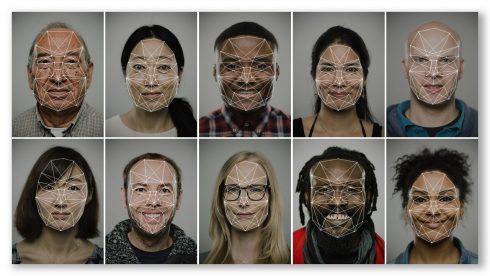
As facial recognition technology advances, Microsoft is worried about how it could be taken advantage of. For instance, users could be unknowingly tracked everywhere they go. As a result, the company is asking technology companies to start taking action.
“The facial recognition genie, so to speak, is just emerging from the bottle. Unless we act, we risk waking up five years from now to find that facial recognition services have spread in ways that exacerbate societal issues. By that time, these challenges will be much more difficult to bottle back up,” Brad Smith, president of Microsoft, wrote in a blog post.
RELATED CONTENT: Microsoft calls for public regulation of facial recognition technology
Back in July, the company began to urge governments to adopt laws to regulate the technology. It even provided several recommendations. However, Microsoft explained that it can no longer sit back and wait for governments to step up.
“We and other tech companies need to start creating safeguards to address facial recognition technology. We believe this technology can serve our customers in important and broad ways, and increasingly we’re not just encouraged, but inspired by many of the facial recognition applications our customers are deploying. But more than with many other technologies, this technology needs to be developed and used carefully,” Smith wrote.
Microsoft will begin to implement six principles to manage these issues within the company, and it hopes that by sharing these principles others will be inspired to do the same.
According to Smith, the principles are:
- “Fairness. We will work to develop and deploy facial recognition technology in a manner that strives to treat all people fairly.
- Transparency. We will document and clearly communicate the capabilities and limitations of facial recognition technology.
- Accountability. We will encourage and help our customers to deploy facial recognition technology in a manner that ensures an appropriate level of human control for uses that may affect people in consequential ways.
- Nondiscrimination. We will prohibit in our terms of service the use of facial recognition technology to engage in unlawful discrimination.
- Notice and consent. We will encourage private sector customers to provide notice and secure consent for the deployment of facial recognition technologies.
- Lawful surveillance. We will advocate for safeguards for people’s democratic freedoms in law enforcement surveillance scenarios, and will not deploy facial recognition technology in scenarios that we believe will put these freedoms at risk.”
The principles are expected to be implemented by the end of the company’s first quarter of 2019. In addition, it will provide new materials and training resources to promote the use of facial recognition in a responsible manner. “Especially at this stage of its development and more so than for many other products, facial recognition technology requires that tech companies and customers work together to deploy these services successfully. We are committed to working closely with customers in the public and private sectors alike,” Smith wrote.
Microsoft does note the many benefits we have to gain from facial recognition. According to Smith, New Delhi police were able to use the technology to identify about 3,000 missing children in just four days; and researchers have used the technology to diagnose rare genetic disease in Africans, Asians and Latin Americans. However, Smith noted that we will need to be weary of the risks and attack areas. Microsoft believes governments should address uses of the technology, how it will cause intrusions to privacy, and how mass surveillance will impact democratic freedoms.
“Governments and the tech sector both play a vital role in ensuring that facial recognition technology creates broad societal benefits while curbing the risk of abuse. While many of the issues are becoming increasingly clear, the technology is young. We need to tackle the initial questions now and learn as we go, developing more knowledge and expertise as the technology evolves and public sector experience deepens,” Smith wrote.
Going forward, Microsoft plans to provide a detailed document on its principles, and continue to work to create new policies, processes and tools to apply these principles.






